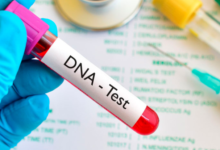Does Genetics Influence Drug Addiction Risk?

Have you asked yourself why some people seem more vulnerable to drug addiction than others? You might notice that addiction often appears to run in certain families. The reality is, there’s more going on here than just environmental factors. Genetics can significantly impact one’s risk of developing a substance use disorder. Understanding this connection is key, and seeking help from a reputable rehab centre can be an important part of managing these risks. In this article, let’s explore how genetics may influence drug addiction risk and why this knowledge can help in seeking the right kind of support.
The Role of Genetics in Addiction
Genetics isn’t just a buzzword scientists use. It shapes nearly every aspect of who we are – from our physical appearance to the way we cope with stress. When it comes to drug addiction, genetics plays a big part. Research suggests that genetics can account for nearly 50% of an individual’s vulnerability to addiction. If your family has a history of substance abuse, you could be at a higher risk because your DNA might carry certain genetic markers that make you more prone to addiction. If you’d like to know more about rehabilitation centres in Melbourne make sure you visit The Hader Clinic.
These genetic markers can affect how your brain’s reward system works. For some people, using substances creates an intensely pleasurable experience – much stronger than what others might feel. This makes it easier for them to fall into repeated use, eventually leading to addiction. But genetics doesn’t seal your fate. While you may inherit a predisposition, lifestyle choices and your environment also play critical roles.
Nature vs. Nurture: Beyond Just Genes
While genetics can set the stage, it’s far from being the only player in addiction. The classic nature versus nurture debate is crucial here. Genes may create a potential vulnerability, but whether that vulnerability is triggered depends largely on environmental factors. Being in an environment where substances are accessible or facing significant stress, trauma, or peer pressure can elevate your risk.
Think about growing up in a household where substance use seems normal. Even with a genetic predisposition, witnessing substance misuse regularly can make you more inclined to experiment yourself. The powerful combination of genetic susceptibility and environmental exposure dramatically raises the likelihood of developing drug addiction.

Moreover, stress and trauma can alter how the brain functions, especially in individuals with a genetic predisposition. For instance, chronic stress can change how the brain responds to dopamine, the chemical often linked to pleasure and reward, making substances seem like a shortcut to relief. In families with a history of addiction, this altered dopamine response may be more pronounced, further increasing vulnerability. Similarly, peer influence, particularly during adolescence – a critical period for brain development – can play a major role in shaping behaviours that lead to substance use.
Why Knowing Your Genetic Risk Is Empowering
You may say, why does it matter whether or not there is a genetic factor to the addiction? Well, understand it does if genetics plays into addiction; it’s kind of a game-changer. It may more easily help you realize that addiction isn’t a simple matter of willpower or even a moral failing, but, instead, it’s a layered condition affiliated with biology.
This knowledge also serves as the foundation for addiction rehab. Increasingly, rehab centers adopt treatment that is specialized to meet specific needs, and genetic testing has become an integral component of many such personalized plans. When testing in rehabilitation settings is done, it typically involves little more than a cheek swab or blood test to find the presence of certain markers associated with addiction risk. By identifying these markers, it will be possible for the doctors to learn how your body might react to certain substances or medications, and that could make all the difference in your line of treatment.
Genetic differences could make some people more sensitive to the euphoric effects of alcohol or drugs, while others metabolize certain substances differently, thereby affecting the severity of withdrawal symptoms. With these pieces of information available, rehab centres can also offer medication dosages, choose therapies which may have a better chance of success, or even predict complications one is likely to confront during recovery.
If you or a loved one is thinking about rehab at Port Hope or another facility, discussing the family history of addiction and genetic testing often allows the physician to establish a tailored recovery program that better suits your needs. This is one such etiological model that provides great hope for success with a durable recovery, as the symptoms of addiction, coupled with the predisposing genetics, become the foci of the intervention.
Genetics and Mental Health: A Double-Edged Sword
Another point at which genetics influences addiction risk is through its relationship with mental health. Genetic factors may make a person vulnerable to mental health conditions such as anxiety, depression, or PTSD. These are often comorbid with substance abuse; that is, they tend to travel together. People who are dealing with active, untreated mental health issues may self-medicate with drugs and, hence, be more susceptible to addiction.
In these cases, it would be best to address both problems at the same time with dual-diagnosis treatment. A luxury rehab could offer very specialized programs with a focus on addiction and mental health in general, side by side. The nature of this addiction therapy doesn’t just try to clean the body but also stabilizes mental health, which is a must for long-term recovery.
Read also: Developing Healthy Habits for Long-Term Well-being
The Value of Early Intervention
If genetics plays a role in your addiction risk, early intervention becomes even more important. Knowing that you’re more vulnerable should motivate you to take preventive measures. If there’s a family history of addiction, prioritize having open conversations about these risks. Early education and awareness can help you make informed choices and possibly avoid addiction altogether.
If you or someone you care about is already struggling, seeking help as early as possible is key. Rehab at Port Hope or other specialized facilities can provide the support needed before the addiction becomes too severe. Early intervention might involve therapy, lifestyle adjustments, and support groups that help you avoid triggers and build resilience.
Building a Strong Support System: Family and Friends Matter
The role of genetics also highlights the importance of a supportive environment. Since the risk of addiction can be hereditary, having a supportive family network is crucial for both prevention and recovery. Talking openly with family members about the risks associated with addiction can make a significant difference. Family therapy, available at many rehab centres, can help families understand addiction as both a genetic and behavioural issue, creating a more supportive environment.
A strong social support system is also key to staying on track. If you’re attending a luxury rehab, family programs often educate loved ones on how to best support your recovery. This kind of involvement is crucial because it helps heal not just the individual but the entire family affected by addiction.
Breaking the Cycle: You Are Not Your Genes

One empowering message is that genetic predisposition does not mean you’re destined for addiction. Whereas genes can impact one’s vulnerability, genes do not make the choices of behavior. Knowledge is power, and armed with this, one may affect positive changes in life to reduce the risk associated with genes.
Such genetic tendencies can be somewhat curtailed with the help of healthy coping mechanisms, including regular workouts, mindfulness, and fulfilling hobbies. Following are some of the effective coping mechanisms you can consider:
- Exercise: Regular physical activity helps release endorphins that improve mood and reduce stress. For one thing, exercise can be a very strong alternative to the pleasurable feeling obtained from substances and offer a healthier substitute for the brain’s reward system.
- Mindfulness and Meditation: Being conscious helps you stay present and cope better with stress or anxiety, which could be major triggers for addiction. Through meditation techniques, such as focusing on your breath or visualization, emotional balance can be achieved.
- Engaging Hobbies: Painting, music, or even gardening can give one a meaning and goal to stay fulfilled. This helps distract the mind, decreasing cravings while channelling one’s emotions into positive ways.
- Cognitive Behavioral Therapy: This is specifically therapeutic support which works best for addicted people. CBT helps you to recognize and alter the sequence of negative thoughts that lead to substance use.
- Support Groups: Being part of a support group like Narcotics Anonymous gives a sense of community because one feels others understand them. Most of the time, when recovering, feeling alone is the last thing one wants to face.
Taken together, these strategies, coupled with professional intervention at the hands of addiction rehab, present comprehensive ways to avoid substance abuse and live a meaningful life.
Take Charge of Your Risks
Genetics certainly plays a role in your risk of addiction, but it’s just one part of a larger puzzle. Environmental influences, mental health, and personal choices all contribute to shaping your relationship with substances. If you know you’re at higher risk due to genetics, use that awareness as the first step toward prevention.
Getting support from a trusted rehab centre can make a world of difference in your recovery journey. Whether you opt for a luxury rehab with comprehensive programs or rehab with a more tailored approach, remember that everyone’s path to recovery is unique. Your genetics may influence your risks, but they do not define your potential or your future. The power to change is yours, and the first step is reaching out for the support you deserve.






